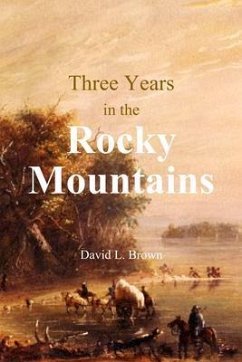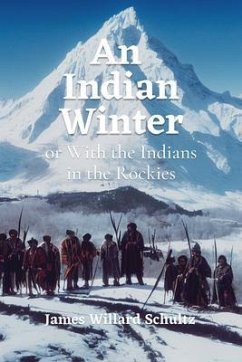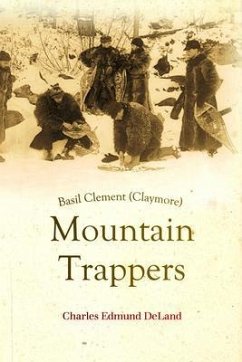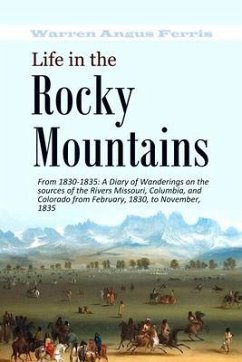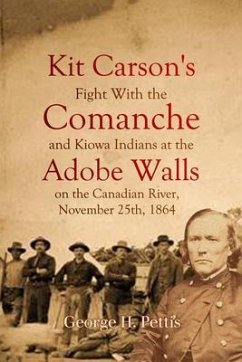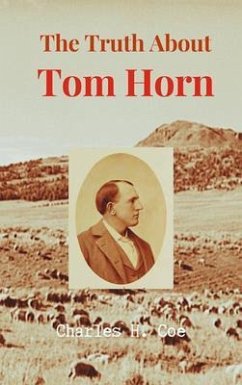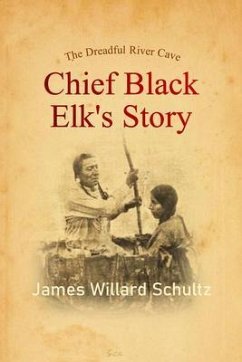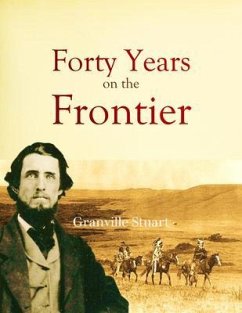
In the Heart of the Bitter-Root Mountains (eBook, ePUB)
The Story of "the Carlin Hunting Party," September-December, 1893 (1895)
Versandkostenfrei!
Sofort per Download lieferbar
3,99 €
inkl. MwSt.
Weitere Ausgaben:

PAYBACK Punkte
2 °P sammeln!
"Probably one of the most...inconceivable stories within the scope of ordinary imagination." - Snowbound (1997)"They were compelled to abandon their cook, Colgate...many people have severely condemned these young men." -Recreation (1895)"I found myself drawn into the story so completely that I was compelled to read every word of it." -Recreation (1894)"It would not have been possible for the Carlin party to have brought a sick man, on travois over the Lo Lo trail, as we found it." - Lieut. Clough Overton"Himmelwright was a central figure in that thrilling experience...saved that enthusiastic b...
"Probably one of the most...inconceivable stories within the scope of ordinary imagination." - Snowbound (1997)
"They were compelled to abandon their cook, Colgate...many people have severely condemned these young men." -Recreation (1895)
"I found myself drawn into the story so completely that I was compelled to read every word of it." -Recreation (1894)
"It would not have been possible for the Carlin party to have brought a sick man, on travois over the Lo Lo trail, as we found it." - Lieut. Clough Overton
"Himmelwright was a central figure in that thrilling experience...saved that enthusiastic but unfortunate party from destruction." -The Perkiomen Region (1895)
"So much in the nature of attack and adverse criticism has been said and written about the Carlin hunting party, which left its guide, George Colgate, to die in the Bitter Root Mountains in Idaho." -New York Times, Jan. 28, 1894
The tragic abandonment of their sickened camp cook to a horrible fate on the frozen banks of the Clearwater River in the Bitterroot Mountains, is but one of the many harrowing events narrated by Himmelwright in his 1895 classic survival book, "In the Heart of the Bitter-Root Mountains."
Snowed in, their horses and nearly all their equipment lost, and within an inch of losing their lives a dozen times, the author gives a detailed history of the adventures, the trials, the sufferings, and the final rescue attempt of this unfortunate hunting party that went into the Bitter Root Mountains of Idaho, in November of 1893.
In describing the dilemma the hunting party faced, Himmelwright writes:
"What would become of Colgate? He could not walk, and in the soft snow, even if we could make rude snowshoes, it would be impossible to carry him.... To continue on that route, with so meagre a supply of food and the game uncertain, involved almost certain starvation for the entire party or the eventual abandonment of Colgate to save our own lives...."
Himmelwright describes the moment they eventually abandoned Colgate alone and sick on the bank of the Clearwater River:
"We made him as comfortable as we could, left him what necessaries we thought he might require in the brief period he had yet to live, and, shouldering our packs, we started sadly down the river. Although Colgate's head was turned toward us, he made no motion or outcry as he saw us disappear, one by one, around the bend...."
¿
Besides being a spell-binding narration of the trials and dangers of camp life in a wild country, the book contains an intriguing story centered around an old prospector they encountered living in a cabin in the Bitterroot Mountains who had been searching for a rich gold find that a starving Indian had failed to lead him to.
About the author:
Abraham Lincoln Artman Himmelwright (1865 -1936), a civil engineer, author, builder, adventurer, and marksman was the general manager of The Roebling Construction Company.
"They were compelled to abandon their cook, Colgate...many people have severely condemned these young men." -Recreation (1895)
"I found myself drawn into the story so completely that I was compelled to read every word of it." -Recreation (1894)
"It would not have been possible for the Carlin party to have brought a sick man, on travois over the Lo Lo trail, as we found it." - Lieut. Clough Overton
"Himmelwright was a central figure in that thrilling experience...saved that enthusiastic but unfortunate party from destruction." -The Perkiomen Region (1895)
"So much in the nature of attack and adverse criticism has been said and written about the Carlin hunting party, which left its guide, George Colgate, to die in the Bitter Root Mountains in Idaho." -New York Times, Jan. 28, 1894
The tragic abandonment of their sickened camp cook to a horrible fate on the frozen banks of the Clearwater River in the Bitterroot Mountains, is but one of the many harrowing events narrated by Himmelwright in his 1895 classic survival book, "In the Heart of the Bitter-Root Mountains."
Snowed in, their horses and nearly all their equipment lost, and within an inch of losing their lives a dozen times, the author gives a detailed history of the adventures, the trials, the sufferings, and the final rescue attempt of this unfortunate hunting party that went into the Bitter Root Mountains of Idaho, in November of 1893.
In describing the dilemma the hunting party faced, Himmelwright writes:
"What would become of Colgate? He could not walk, and in the soft snow, even if we could make rude snowshoes, it would be impossible to carry him.... To continue on that route, with so meagre a supply of food and the game uncertain, involved almost certain starvation for the entire party or the eventual abandonment of Colgate to save our own lives...."
Himmelwright describes the moment they eventually abandoned Colgate alone and sick on the bank of the Clearwater River:
"We made him as comfortable as we could, left him what necessaries we thought he might require in the brief period he had yet to live, and, shouldering our packs, we started sadly down the river. Although Colgate's head was turned toward us, he made no motion or outcry as he saw us disappear, one by one, around the bend...."
¿
Besides being a spell-binding narration of the trials and dangers of camp life in a wild country, the book contains an intriguing story centered around an old prospector they encountered living in a cabin in the Bitterroot Mountains who had been searching for a rich gold find that a starving Indian had failed to lead him to.
About the author:
Abraham Lincoln Artman Himmelwright (1865 -1936), a civil engineer, author, builder, adventurer, and marksman was the general manager of The Roebling Construction Company.
Dieser Download kann aus rechtlichen Gründen nur mit Rechnungsadresse in A, D ausgeliefert werden.





